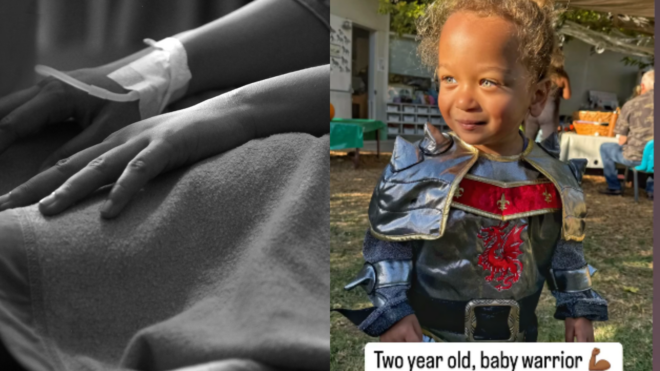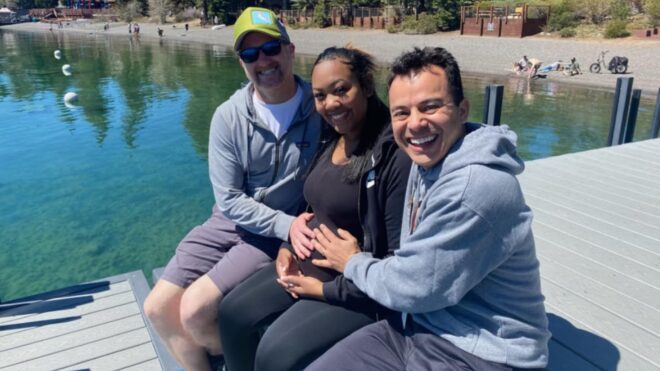
I always tell people that I feel incredibly lucky when it comes to my childbirth experience. Because of some life circumstances, I didn’t find out that I was pregnant until I was almost halfway through my pregnancy. When I did eventually find out and started receiving prenatal care, my baby and I were both in great health despite how far along I was.
I made sure that I was taking my prenatal vitamins, tweaked my diet to eliminate things that would be bad for the baby, and got ready for impending motherhood. I enrolled in Medi-Cal — California’s state-sponsored health care coverage — and was lucky to find a good clinic with great doctors and a caring team.
At my 37-week checkup, my doctor said I was in good shape, and now that I was technically full term to begin preparing myself for the baby to come at any time. I had already gone on the hospital tour and signed up for the childbirth class and was feeling good about delivering my baby.
I’m glad I did, because six days later, contractions started right before the childbirth classes did. The contractions were manageable until the following morning when they started coming on more consistently. By mid-morning, I was beginning to wonder if I would end up making it to Target, as I had planned for that day. A few hours later, my friend would be driving us to the hospital.
By the time we got there, I was fully dilated and ready to push. A nurse with the power of 10 men hoisted me onto a gurney, and all I could hear was whooshing as I was rushed from triage to a delivery room where a midwife was waiting. My doctor had gone out on maternity leave, and I never got to meet her replacement.
I got on my back and started pushing, but the midwife noticed that every time I would push, the baby’s heart rate would drop. So they put an oxygen mask on me and rolled me on my side. After 45-ish minutes of pushing, my son was born. I have never been more thankful for anything than the midwife and interns who delivered my son.
As a Black woman, I know that in other circumstances, outcomes could have been very different for both of us. Black women aren’t always so lucky in the delivery room. In fact, the Black maternal mortality rate in the US is a staggering three times that of white women. Nearly 70 Black women die per 100,000 births in one of the most developed countries in the world. To be Black and pregnant in America is a terrifying prospect for many. We all have different experiences, and here, five other Black moms are sharing their birth stories, some harrowing, some inspiring, all beautiful.
More from CafeMom: I Visited a Wellness Center for Black Moms, Here’s How It Went
Tanisha Smith
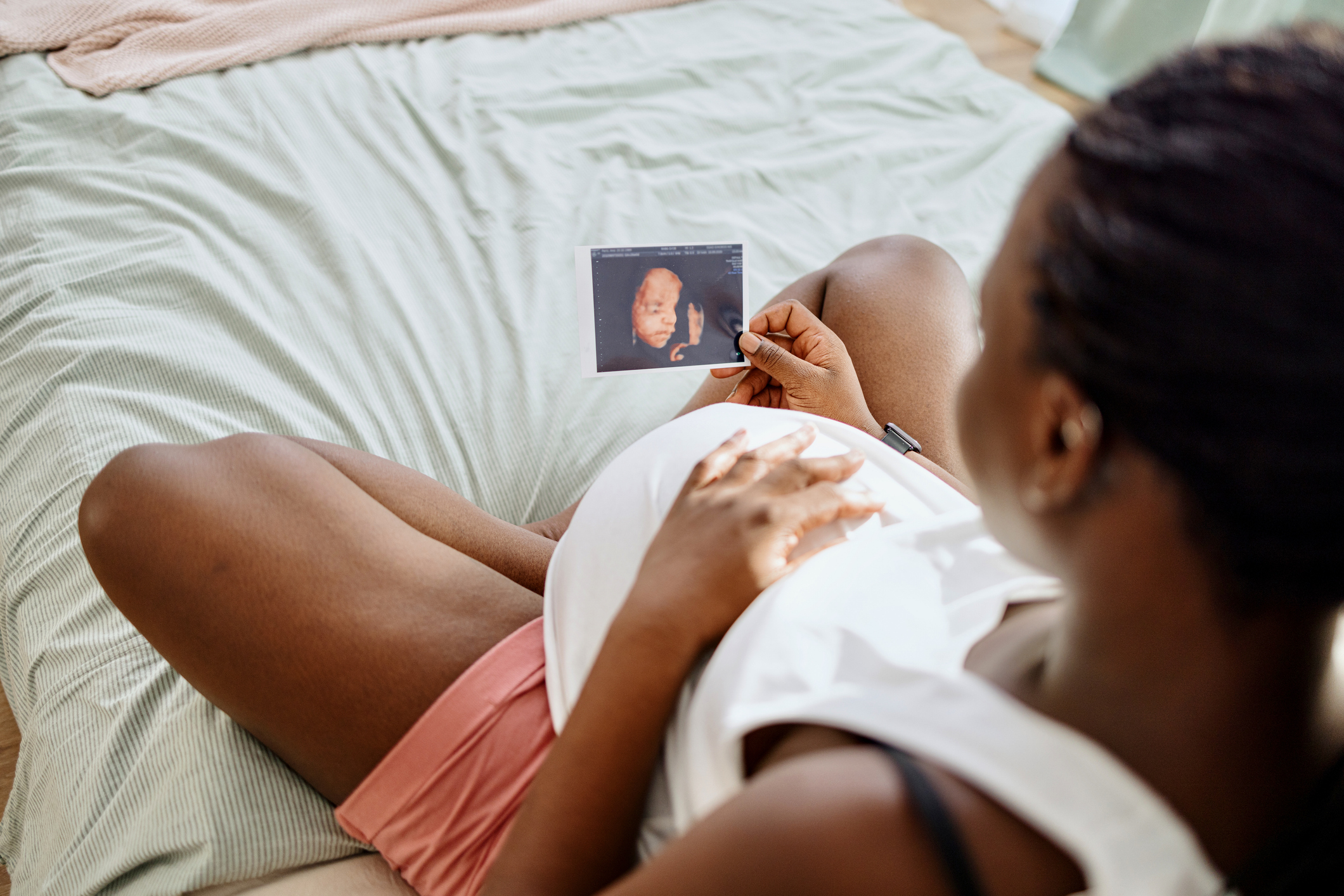
“When I had my first daughter, I got pregnant at 19, and I had her when I was 20. I was still in college. I was on public assistance. I used a program for low-income people who are giving birth, and they offered parenting classes and breastfeeding assistance. Even as a low-income young, Black mother, I was OK; the structures existed to create safety. The interesting thing is that I had a nurse practitioner, which is very different from what I’m going to say for the others. My water broke, but I was still fingertip [dilated], so then they gave me Pitocin — they induced me. Then tricked me not to get an epidural.
“But they had heard so many horror stories about epidurals that they basically told me it was too late. And then, they just were like, ‘We gotta get this baby out of here.’ She was being choked by her umbilical cord. So every time I pushed, it was strangling her. But she was in the birth canal so they were trying to just get her head out so that they could grab the umbilical cord. They saved my baby’s life and I never knew their names. I breastfed her until she was 12 months. It wasn’t easy. She didn’t gain a lot of weight and people tried to discourage me.
“With my next pregnancy in 2001, I had insurance. And a doctor. He was gynecological royalty on Staten Island. When my water broke, there was meconium — my labor was progressing, but he was like, This is dangerous.’ [I guess my daughter] heard C-section and was like, ‘Oh h— no.’ Then the labor just ran through and this time I had an epidural.
“And then there’s my last pregnancy. I was like, ‘Oh, liquid. Let’s go to the hospital.’ When I got to the hospital, I was told I was having Braxton Hicks contractions. The nurses explained that the liquid was not amniotic fluid. But then they noticed every time I had a Braxton Hicks contraction, the baby’s heart rate dipped. So I stayed for like six hours, and my doctor said we had to get the baby out. It was life or death. My doctor was masterful; you can’t even see my C-section scar.
“I was in the hospital for a few days, and my baby was a crier. They cried so much that even though that wasn’t their policy, the nurses left them in with me in my hospital room, because one of the nurses claimed ‘when they’re with you, they don’t cry.’ While we were in the hospital, the baby lost about a half pound, which is a significant amount of weight. And on the day my milk came in, the nurses gave my baby a bottle. My kids’ pediatrician, who had also been my pediatrician, begged me to calm down. I said, ‘Do you know what they’ve done to me? Do you know what they’ve been doing to me?’ I was engorged because I couldn’t nurse.
“My last childbirth experience was the worst experience that I had. I felt that the nurses in the hospital perceived me as an uppity Black lady and not as a concerned parent.”
Tiffany Greenaway
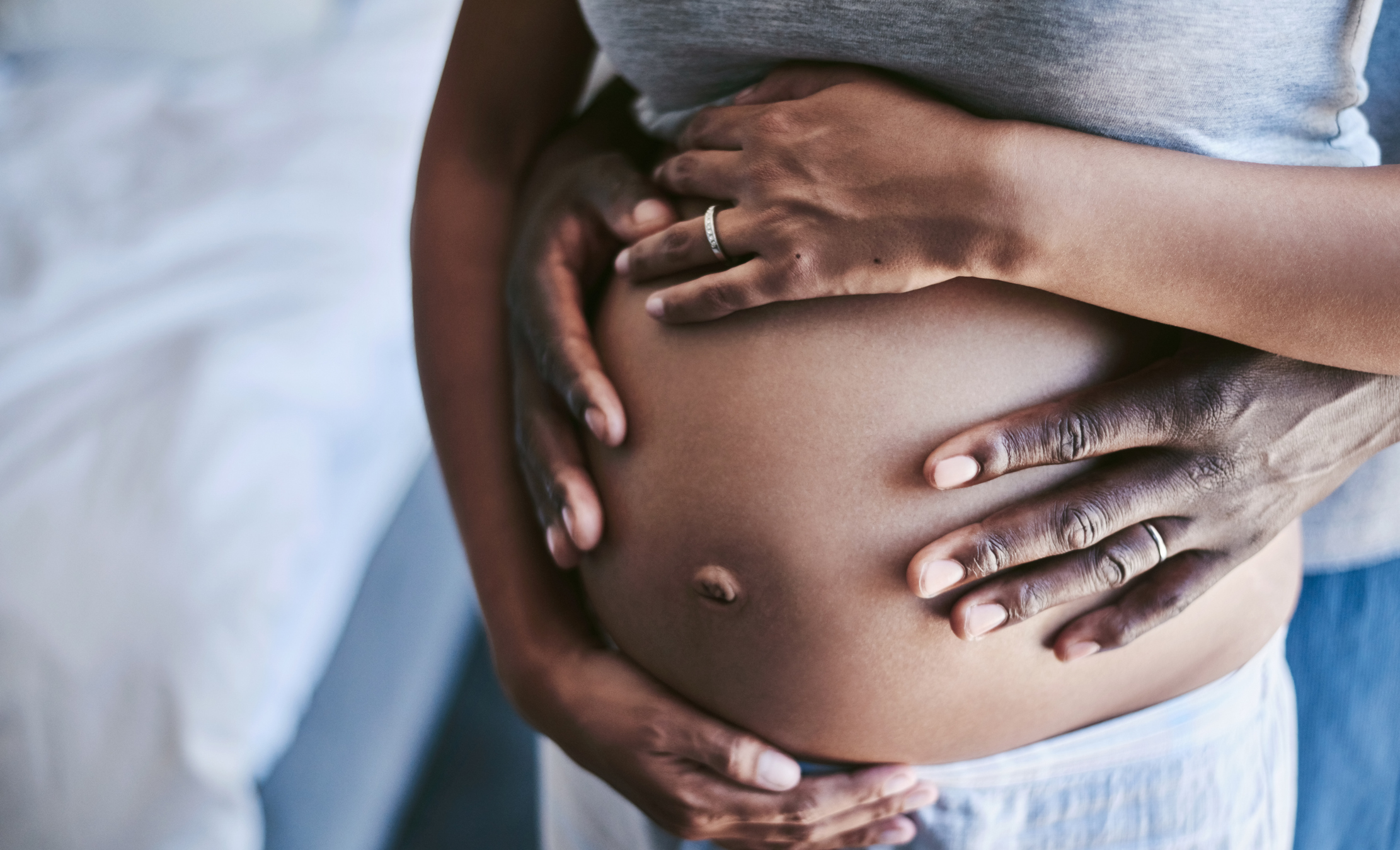
“I was having a boy, we were due in June, and I was going to have a water birth. I had read all the books, planned all the things, and had been having a pretty uneventful pregnancy. Until I wasn’t.
“Around month 5, I found out that I had gestational diabetes. Because I was deemed high risk, I’d have to deliver at the hospital. There went the water birth I’d envisioned. I convinced myself that it was the best option for a healthy delivery and continued planning around weekly doctor’s visits. I’d see my OB one week, and then a different doctor the next. It was at one of those visits that I learned that the little flutters I’d been feeling that day were actually contractions, and that every time I had one, my baby’s heart rate dropped. We went to the hospital for what we thought was just routine checking to make sure the baby was OK.
“It wasn’t. I was 4cm dilated, and our baby boy was on his way, a month before his due date. This wasn’t in the books. None of it was according to plan. I was terrified and felt overwhelmed, but a Black midwife helped to calm my fears.
“She told me to tap into my own power. That many women had done this before me, and that I could do it too. As I pushed my baby boy into the world, I called on their strength, and realized my own.
“Now our son — now 12, and his brother, 11 — watch me help other birthing people tap into their power as a doula. I advocate alongside Black families in a system that continually ignores our pain, minimizes our voices, and tries to make us feel diminished. I help them recognize their strength and make them feel seen, listened to, and empowered. I thought my pregnancy would be just like everyone else’s. It wasn’t.”
Nikkya Hargrove
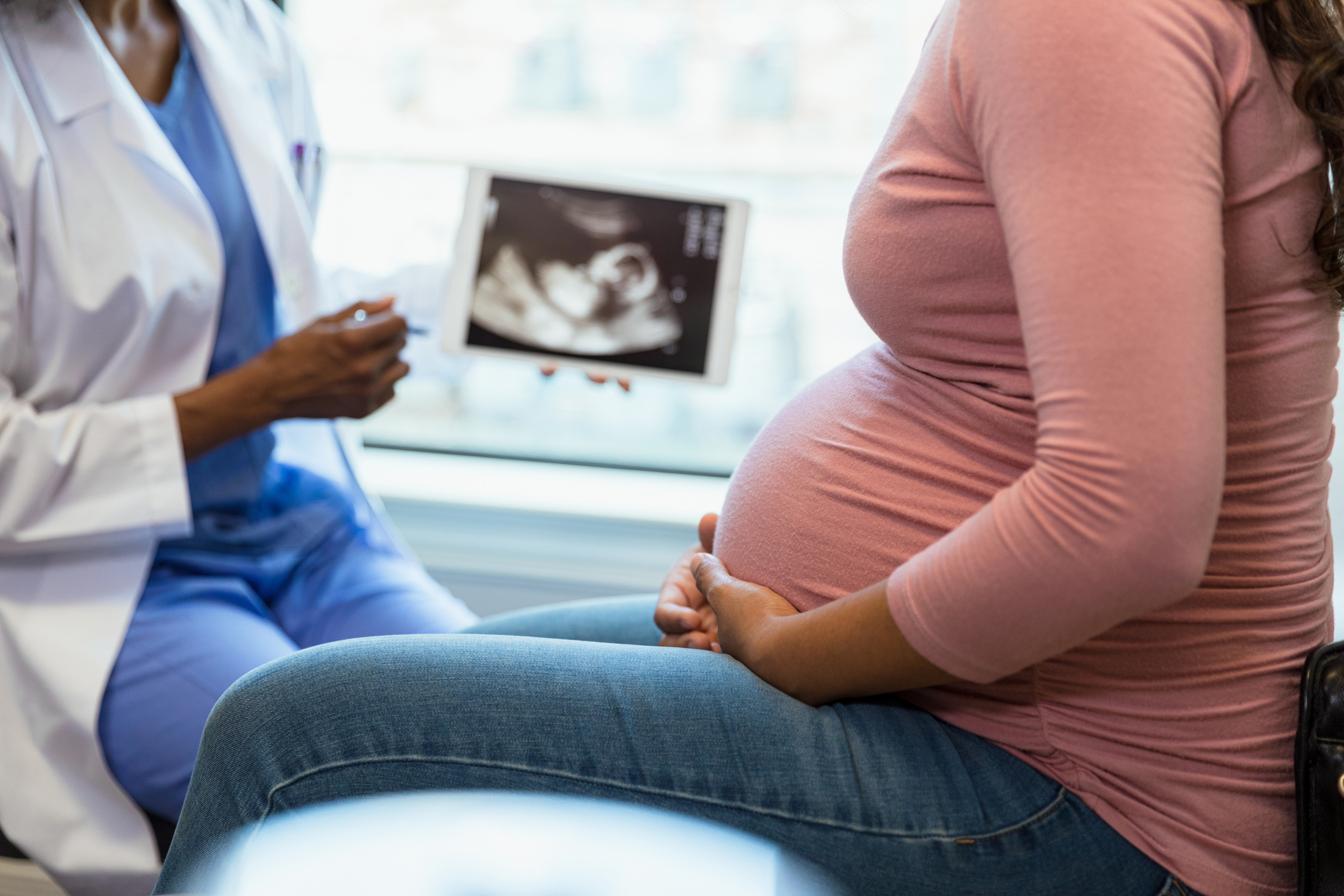
“I didn’t know if I’d ever get and stay pregnant. I’d suffered from uterine fibroids which needed to be removed before my wife and I could even begin the in-vitro fertilization process. After changing endocrinologists and going to a new clinic after my myomectomy procedure to remove my fibroids, the new clinic performed more tests to discover that my body wasn’t yet ready to take the IVF journey. Before the medication protocol could begin, I needed to handle the polyps which developed within my uterus, and then deal with my thyroid issues, which were not at ideal levels for pregnancy. It wasn’t until after all of those tests and surgeries were completed that we were given the green light to move forward to grow our family and officially began the IVF process.
“Just before Thanksgiving in 2014, the egg retrieval and egg transfer were completed. By Christmas, we were celebrating our positive pregnancy test, and just after the new year, we were told we were pregnant with twins – two heartbeats and two babies. Once we moved from our endocrinologist and graduated to the care of our OBGYN, the only thing that was important to me in an OBGYN was someone who would both listen to me and hear me. Namely, I wanted a doctor who would allow me to give birth to my babies vaginally. I wanted to experience it all, experience the entire pregnancy — what I perceived to be a ‘normal’ pregnancy — and give birth vaginally. I thought that this pregnancy would be my only chance to birth babies, and I wanted to experience it naturally.
“A few months into our appointments, a doctor — an African woman — told me ‘My job is to help you get through this pregnancy with healthy babies, and you alive to mother them. If I let you give birth naturally, that will not happen. It’s not safe for you to deliver naturally because your uterus has too much scar tissue.’ She was honest. She was blunt. And she wasn’t hearing my pleas to give birth naturally, because she knew the risks.
“With elevated blood pressure and their inability to get both babies on the heart monitor, they told me to leave their office and head straight to labor and delivery at the very hospital our 36 week C-section was scheduled at. I had preeclampsia and it warranted a hospital stay, two days turned into four and then I was told the babies would need to be delivered early if my liver levels and blood pressure did not decrease.
“By day five, I’d seen countless doctors, and the last delivering the best news: ‘Ms. Hargrove, I will let you go home, your levels aren’t great, but they are better than when you came in, but you must go home and get your blood pressure checked every day by a visiting nurse.’
“And with that, I went home to finish my pregnancy, getting us all to 36 weeks’ gestation and our scheduled C-section. Our babies arrived, healthy, and without issues. During my C-section, the same doctor who diagnosed me with preeclampsia and the same doctor who refused to let me give birth naturally, brought me through surgery, where I almost died because they could not close up my uterus.”
Tiffany Davis
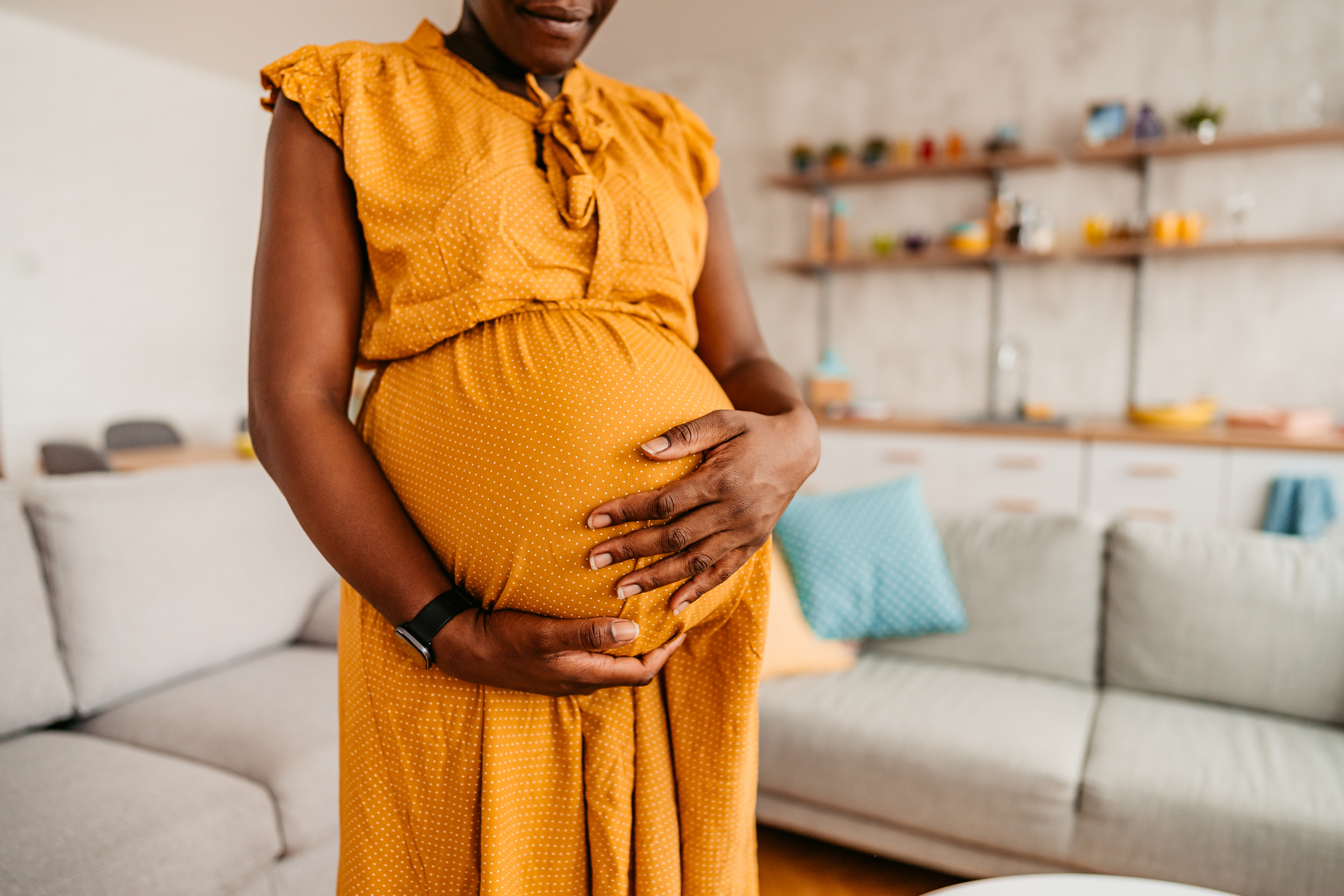
“Birthing in both the Western medicine field and ‘holistic’ midwifery home settings gave me a sense of fear and unjustness. The doctors did not seem to care for my actual well-being but instead their liability. I was not listened to about my concerns and pain. I was subjected to unnecessary procedures (ex. C-section) that almost took my life. [There were] epidurals and IVs administered incorrectly and not fixed even after I expressed extreme pain. I’ve dealt with midwives dismissing my medical history because they assumed because I was Black, I didn’t properly know my history. I also experienced slack care with my homebirth midwife and birthing community in my area (as have other WOC) because of my race.
“After my fourth child, I began to see that being a woman of color birthing in the medical field is terrifying, exhausting, and unfair. After my fifth child , I began to see that being a woman of color birthing in the homebirth community is terrifying, exhausting, and unfair. After my sixth and seventh (twin birth/second VBAC), I know that birthing alone at home was the better option for me.
“The fourth trimester is in my opinion, just as important (if not more, regarding care) as the first three. We are lacking a village. We are lacking the space and time to thoroughly heal. We are lacking rest. We are lacking unconditional support. We are lacking wisdom from our elders. The way a mother heals after birth dictates our society.”
Linara Davidson Greenidge
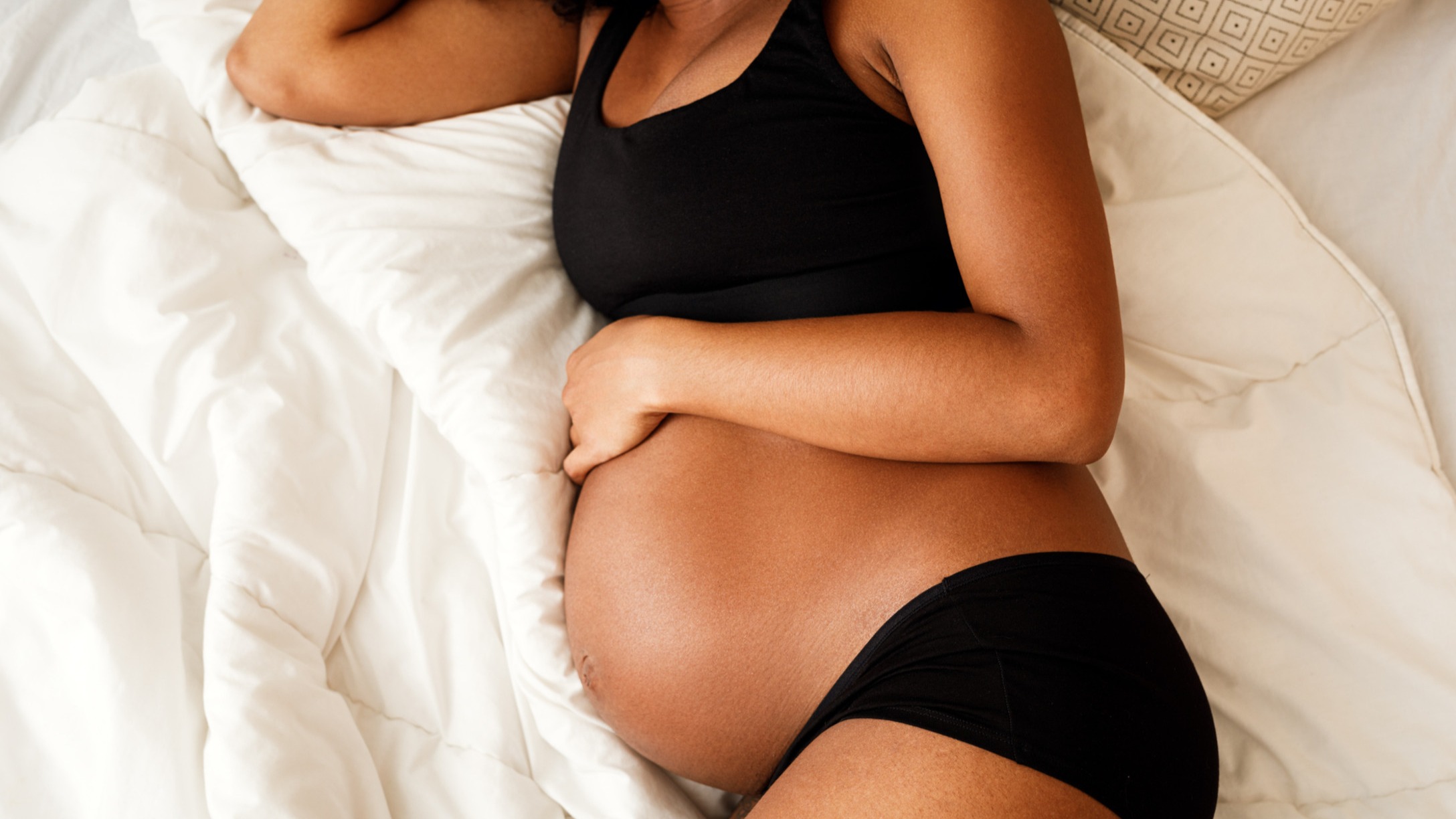
“While giving birth to our first little, I had one doctor use the phrase ‘We believe your pain’ as they failed to get ahead of it, resulting in me giving birth at 29 weeks. We were in the NICU for 54 days, and our little had subsequent surgeries because of this. For our second little, instead of declaring a statement that felt empty and hollow, she asked a series of questions to the team responsible for my care: ‘What makes her unique? What about her previous experience giving birth should we consider?’ This one small moment made me feel seen and safe. Black mothers deserve to feel safe, to be seen, and to be treated with care.
“I had already been a mother for three years when I read somewhere that it could take up to seven years for a woman to begin to feel like herself again after childbirth. Reading that one statement felt so liberating in my bones that I still haven’t looked up if there is any research to back up this comment. It felt like a message sent just for me at a time where I was having difficulty extending myself the grace motherhood requires. My reality is that I’m four years in and I wish it was socially acceptable for me to say I am still in postpartum.
“Perhaps, however, it is not postpartum that lasts this long. Maybe what I’m experiencing instead is my grief of the proverbial death of the woman I used to know as me. For the last few years, as much as I have been in bliss creating my new life, with my new family, I have been longing for what was. Grieving what I thought motherhood would be. I am forever changed in the most profound way. Experiencing my body giving birth twice has reconnected me to myself and to the Earth. Being responsible for the thriving of two souls is hands down my most sacred work. And I underestimated just how much this journey would require me to parent me first in order to protect and show up for these boys like they deserve.”

